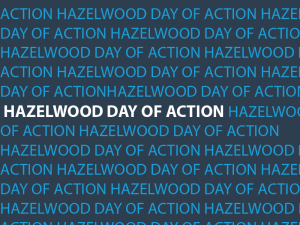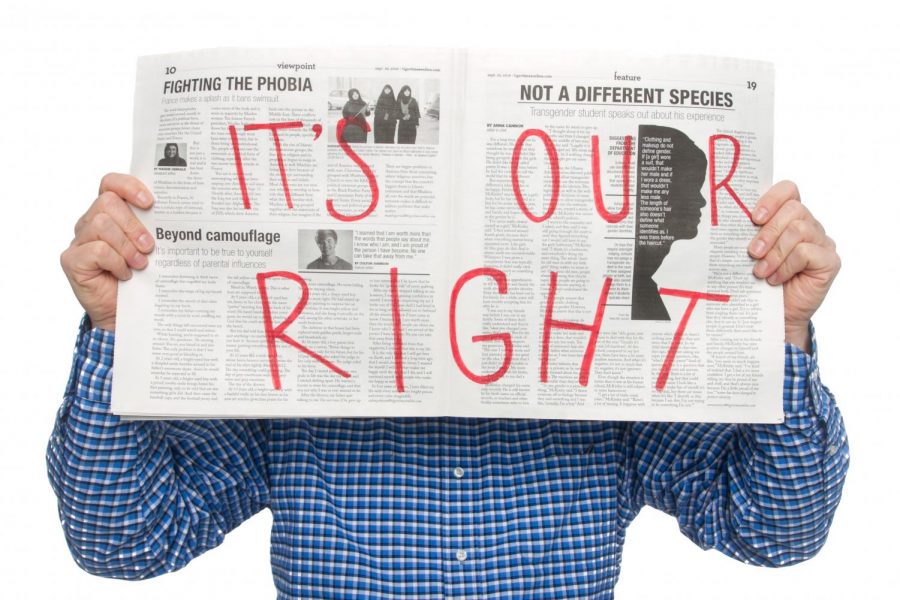Know your rights
Student journalists fight back against prior review
Photo by Kaitlyn Gordon
Today is a day of action for student journalists nationwide– one in which high school journalist programs are fighting back the ruling of Hazelwood School District v. Kuhlmeier. Student journalists are fighting for the right to have complete control over their First Amendment rights.
January 31, 2018
It’s the right to express whatever religion you choose freely. It’s being able to speak freely. It’s the freedom of the press. It’s your right to come together peaceably and to petition the government. It’s your First Amendment right.
However, as a student and student journalist, this right changes. The limits of free speech, self-expression, and the press can be determined by the administration of schools. School administrations from around the nation have the authority to decide what language is used and what student journalists can say whether it is for the better or worse. Many administrations have been accused of censoring student press. In some cases, these issues concerning student’s First Amendment rights were fought in the U.S. Supreme Court.
In one of these such cases, Hazelwood School District v. Kuhlmeier, prior review was established: this is when administration – or anyone not in the publication in a position of authority at the school – requires that they be allowed to review and approve student content before publishing or distribution of such material. In the case of Hazelwood, it was ruled that “the First Amendment rights of student journalists are not violated when school officials prevent the publication of certain articles in the school newspaper.” In other words, student journalists’ First Amendment rights are limited the moment they set foot on public school campuses.

Today, Jan. 31, student journalists are fighting against this injustice. They’re fighting to be treated like adult journalists and to be treated as professionals because their voices, opinions and issues matter. They fight today to stop the censorship alongside the Student Press Law Center, “a non-profit organization in the United States that aims to protect the freedom of the press for student journalists.”
“I think the Hazelwood case and student censorship is probably one of the most destructive legacies of the American court,” student journalist Craig Crawford said. “There’s a lot of whiplash from older generations who are censoring these issues that are pressing for students in our generation. They’re essentially trying to disenfranchise students of their rights.”
Rights of the general student body are also affected by this censorship. In cases, such as Bethel School District v. Fraser and Tinker v. Des Moines, the student’s rights to self-expression and protest were determined by the U.S. Supreme Court.
In Tinker v. Des Moines, students organized a silent protest against the Vietnam War by wearing black armbands to school. They were told they would be suspended if they followed through with the protest, and instead of listening to instruction, students exercised their First Amendment right and were suspended. Their parents sued the school for violating their rights to free speech and won. It was decided that “students do not shed their constitutional rights at the schoolhouse gates.”
Not only are students censored and lacking essential rights on campuses across the United States, they are also not informed about these pressing issues.
“Students don’t know their rights in school,” Crawford said. “They don’t know their rights to expression. It’s those kinds of things that are ultimately destructive for students. It’s a legacy of not knowing.”















